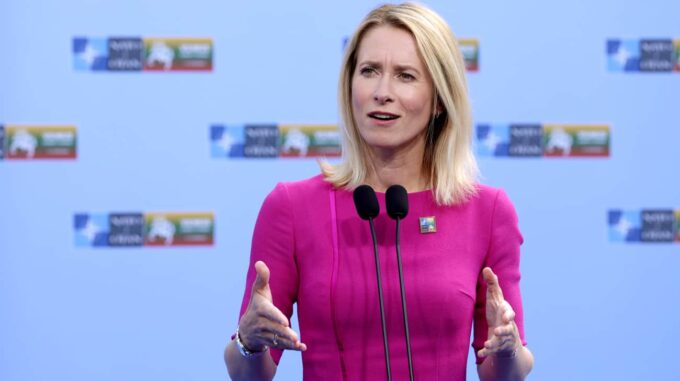European Leaders on the Edge of a New Security Reality: China and Russia — the Main Challenges of the 21st Century

This week, alarming signals re-emerged on the diplomatic scene of Europe and Asia: the world has entered a period when the primary challenges to security and stability are the growing presence of China and Russia, and their joint actions have called into question the fundamental foundations of the global order based on rules. The integration of these two post-Soviet and Chinese giants into the modern geopolitical conflict is open for discussion and increasingly worrying European leaders and allies. Meetings and Diplomatic Messages Western leaders are moving towards Asia with a clear and uncompromising message: we must strengthen cooperation to prevent the destruction of the world order built on agreed rules and universal values. The focus is on China and Russia as two states actively shaping a new geopolitical reality, seeking to change the current system of regulations and security guarantees. Yesterday’s speech by the EU’s leading diplomat, Kai Kael, in Singapore became a key moment in this diplomatic drive. She emphasized that Russia’s war against Ukraine is not merely a local conflict but part of a broader geopolitical game in which Russia is active and relies heavily on support from China. “This is a challenge of our time, and each of us should be fully aware of its severity. When China and Russia issue joint statements about major global changes unseen since the pivotal world order shifts a century ago — it’s a warning sign for the entire international community,” Kael stated. Accusations and Risks The Austrian-born diplomat reiterated China’s active assistance to Russia in the war against Ukraine. She noted that about 80% of dual-use goods used in combat operations in Ukraine originate from the world’s second-largest economy. This means China is actively supporting Russia’s military machine, raising particular concern among European allies and American partners. It is known that the US has long warned of dangerous cooperation between these two countries: China supplies Russia with critically important technologies, including drones and other equipment, and both states — according to experts — conduct cyberattacks, destabilizing critical infrastructure sectors, for example, by disrupting submarine cables and other strategic objects. The International Community Calls for Consolidation of Efforts Kai Kael stressed that to counter these challenges, European and Asian countries need to collaborate more actively. She called on partner countries to deepen cooperation in maritime security, fight illegal trafficking, and review regulations governing these areas. According to the diplomat, the growth of shadow navies and illegal maritime operations creates additional risks for global stability. Amid these signs of diplomatic tension, the statements of French President Emmanuel Macron drew particular attention. He expressed concern about the possible strengthening of NATO’s influence in the Asian region if China fails to take concrete steps to prevent North Korea from intervening in the war against Ukraine. Macron warned that further growth of NATO’s military presence worldwide could trigger a new phase of global tension. Historical Context and Current Situation In the context of this tension, Europe once again emphasizes that China actively reduces supplies of components for Western companies, particularly for the production of unmanned systems, while simultaneously increasing supplies of related materials to Russia. This creates a dual mechanism: on one hand, the megaconglomerate country is reducing dependence on Western markets; on the other, it strengthens its support for Moscow’s war efforts. Thus, the situation on the diplomatic and security fronts is becoming even more acute. Europe and its allies are taking active measures — diplomatic, economic, and strategic — to counter these challenges and preserve the rules-based international order. At a time when global powers seek to redefine spheres of influence and change current standards, the role of Europe and the USA becomes crucial in shaping the future of the world order. The conclusion is clear: to confront this new reality, a strategy, a multi-strategy, is needed — one that unites political, economic, and security tools. The future of the international community in maintaining the balance of power and avoiding a new global crisis depends on it.

